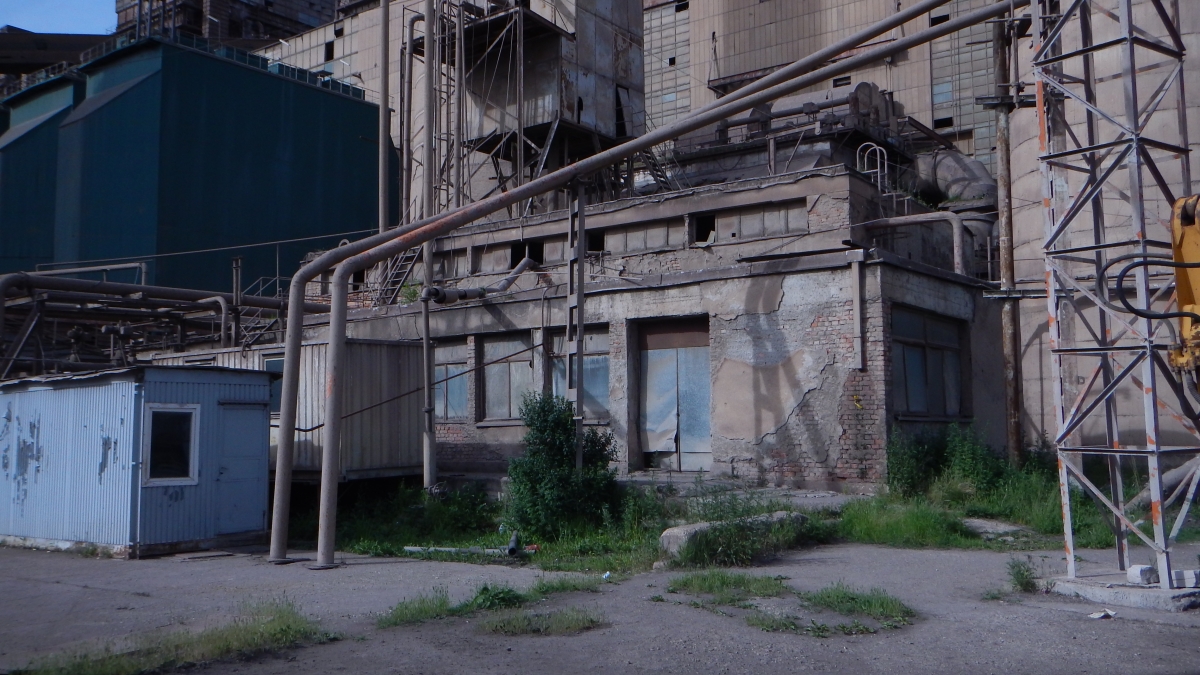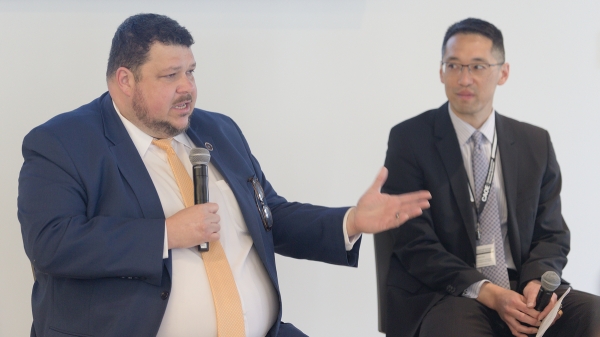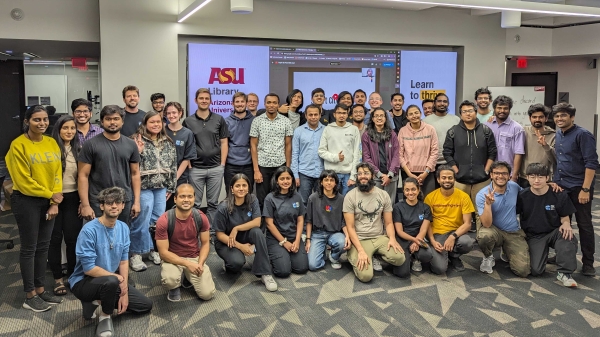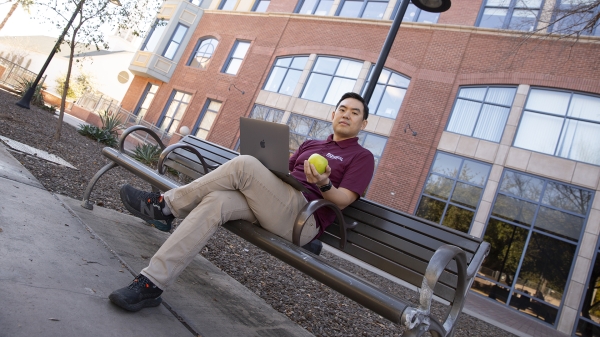Transitioning from coal to solar in Kosovo

Kosovo A is one of the region’s two sources of electricity and is one of the dirtiest power plants in Europe. An ASU team presented ideas for improving Kosovo’s energy supply and converting to clean solar sources. Photo courtesy M. Pasqualetti
Kosovo, one of the world's youngest countries, relies on two aging coal-fueled power plants to generate electricity for its population of almost 2 million. The plants are inefficient, dirty, dangerous and unreliable. Customers frequently lose power, and critical facilities such as hospitals rely on stand-by generators. Arizona State University professors, however, have begun working to help address these issues.
When ASU’s Melikian Center for Russian, Eurasian and East European Studies learned that funding was available to support professional training in Kosovo, the center approached the School of Sustainability to create a program on renewable energy and sustainability.
Professor Stephan Batalden, then-director of the Melikian Center worked with Ryan Johnson of ASU’s School of Sustainability, electrical engineer Ron Roedel and geographer Martin Pasqualetti to develop a proposal. The proposal to give a two-week seminar on renewable energy and sustainability was accepted by the U.S. Agency for International Development (US AID) in collaboration with World Learning, a nongovernmental organization that sponsors education, sustainable development and exchange programs in more than 60 countries.
Johnson approached Pasqualetti and Roedel because of their expertise in renewable energy and their experience with a similar program in the Middle East. "However," Pasqualetti said, "developing a workshop for Kosovo required learning the administrative, political and educational aspects of energy in that country, as well as what other work had been done on alternative energy in the region.”
“A striking aspect of Kosovo is its substantial solar energy resource, yet its complete lack of development of solar power," he said. "It receives about 80 percent of Arizona’s solar insolation. That’s a higher level of sunlight than Germany, which has extensive solar energy facilities.”
The two professors’ first visit, prior to conducting the workshop, was to the Kosovo Energy Company (KEK), which runs the area’s two coal-fueled power plants. They toured the plants, the adjacent lignite coal strip mines and the massive ash disposal areas nearby. The company’s chairman, Berat Rukiqi, explained that, although lignite coal is plentiful, he thinks Kosovo must reduce its carbon footprint to comply with international standards. He sees solar power as an excellent option that his company can lead.
“We saw a reclaimed strip mine and realized that this type of land would be ideal for siting solar equipment at the scale needed for a utility company,” Roedel said.
Roedel and Pasqualetti presented these insights on Kosovo’s solar energy potential to the participants in the seminar that took place in Pristina, Kosovo, from May 30-June 10, 2016.
The participants were 11 faculty members from the Kosovar Universities of Pristina and Mitrovica, selected with a goal of bringing together diverse areas of expertise. The group included mechanical and electrical engineers, a sociologist, an anthropologist, a physicist and a chemist. Each day’s schedule was split between presentations by Pasqualetti, who focused on the social aspects of transitioning to a new energy source, and Roedel, who focused on the technical aspects of renewable energy. Together, they worked to demonstrate the value of interdisciplinary collaboration, considering energy as largely a social issue, and the benefits of substituting renewable energy — especially solar — for dependence on coal.
The participants were enthused. One wrote: “The session was useful first of all because it strengthened the importance of interdisciplinary approaches.”
The seminar concluded with creation of an action plan to create an interdisciplinary undergraduate certificate program in renewable energy and sustainability at the University of Pristina. While this was intended as an exercise, participants stated that the action plan seemed realistic to them, and that they would like to participate in it if it is developed.
If created, the certificate program could benefit from a partnership with ASU’s Professional Science Master’s program in Solar Energy Engineering and Commercialization. Pasqualetti, who is a member of the faculty of the masters’ program, and Roedel, who wrote the original proposal, envision teams of ASU and University of Pristina faculty collaborating on research issues of financing, transitioning from coal to solar, streamlining the permitting process and more.
Pasqualetti and Roedel reached out to First Solar, the world’s largest installer of solar power facilities, and received encouragement from the company’s European managing director. They’re continuing the conversation with First Solar’s leadership at their Tempe headquarters, discussing opportunities for First Solar to work with ASU to develop solar energy in Kosovo and to collaborate with student training and exchanges between ASU and the University of Pristina.
The sponsoring USAID/World Learning leadership has shown support of the workshop as well, suggesting further collaboration to foster renewable energy development in Kosovo.
Both Roedel and Pasqualetti believe that opportunities abound in Kosovo for the solar enterprise, in both the business and academic worlds, and that ASU, in collaboration with First Solar, can help Kosovo build a successful solar future.
Martin Pasqualetti is a professor in the School of Geographical Sciences and Urban Planning, a senior sustainability scientist with the Julie Ann Wrigley Global Institute of Sustainability, and director of ASU’s Energy Policy Innovation Council. Ron Roedel is professor emeritus, recently retired as associate dean of the Ira A. Fulton Schools of Engineering and professor in the Department of Engineering. Ryan Johnson is executive director of Professional Training and Custom Sustainability Education in the School of Sustainability.
More Science and technology

Unlocking the potential of AI for homeland security
“Can we do what we're doing now cheaper, more efficiently, more effectively?” Adam Cox, director in the Office of Strategy and…

SpaceHACK highlights student solutions to environmental challenges, digital divide
By Adrianna Nine About 250 students from around the world convened online and at Arizona State University on March 22 for the…

New AI for a new era of discovery
As the legend goes, in 1665, Sir Isaac Newton sat in his garden at Woolsthorpe Manor in England and looked on as a lone apple…